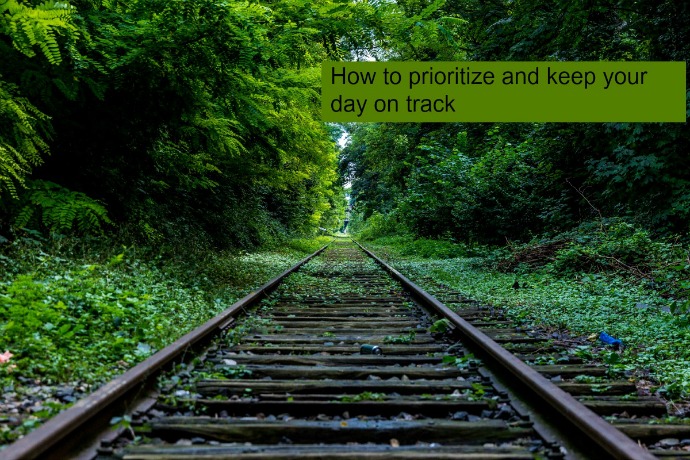“Don’t put off to tomorrow what you can do today.”
How quaint.
I used to live by this mantra. But in today’s world of 24/7 smart phone access, juggling business/kids/relationship/self-care/community and an avalanche of data coming at us, it’s not really sound advice for staying sane.
As a new mama who owns her own business, I have graduated to a whole new level of “prioritization.” Whereas before I was overwhelmed by choices on when to write, create, strategize, serve clients, invent a new course, conduct a webcast…. limited pockets of time these days force the most basic decisions: Do I wash my hair or feed my son before daycare? Do I do a load of laundry, pay the bills, or finish that blog post? Do I eat or shower?
These days, you’ve gotta practice “ruthless prioritization.” (Tweet this!) Here’s how:
Something that has helped this Type A overachiever has been to ask myself 7 key questions before any task. Depending on the answer, you can decide to:
- Do it right away
- Do it by day’s end
- Schedule it
- Outsource it
- Say no
- Ignore it
When you’re having one of those crazy, busy, fire-drill days where it feels like your to-do list is as daunting as Mt. Everest, ask yourself these questions before doing each task. You may just feel lighter, less stressed and more in control:
- Is someone I care about depending on this and by a certain time? The key words here are “someone I care about and “depending.” This could be a client, a vital partner or a family member who truly needs you and needs you now. If you get asked for a favor by someone you barely know that will take time away from more important tasks, it can wait…or be politely turned down. When I choose to skip a shower on a crazy busy morning so I can feed my baby on time – well, that’s pretty much a no-brainer. The boy needs food. But please remember: often, someone else’s urgency does not constitute an emergency on your part – unless you choose to let it.
- Can I quickly deal with it and get it off my plate? When someone emails me for the name and number of that great designer I know, it takes me 2 seconds to send them the person’s contact card. Simple. Done. If they want me to send an email introducing the two of them – something I may want to spend some thought on – well, that can wait until tomorrow.
- Does it generate revenue? We small business owners tend to waste time and energy on things that are not adding to our bottom line, which is sometimes totally okay. But on busy days, given a choice between updating a website page or conducting a paid client call….well, I don’t know about you, but I’ll take the money.
- Is there a point-of-no-return consequence for not dealing with this today? If a reporter from The Wall Street Journal asks for an interview today, heck yeah, make time for the call. You’re on their deadline and you could miss your shot at national press. If someone from a blog you’ve never heard of before emails you out of the blue and asks you to fill out a 10 question email interview? You can schedule time to deal with that next week – and if they won’t wait, so be it. Other tasks in this category can include “Gotta pick up my only suit from the dry cleaner by closing time before my big meeting tomorrow” versus “A colleague wants to brainstorm about a joint event that is not taking place for another 6 months.”
- Am I the only one who can personally handle this? Do you really have to be the one doing it? If not, give it to your virtual assistant, refer it to a colleague, or hire someone from TaskRabbit or Fiverr to deal with it.
- What happens if I say no? Sometimes we think we have to do something when really, it’s just our own internal pressure. I used to freak out if I missed a week of posting to my blog. But, really…is it a case of life or death if I miss a week to deal with something more important? Will my readers riot and take to the streets just because Red Slice did not post something new this week? The realistic answer is no. Everyone’s busy and while consistency is important, the sky won’t fall because my blog is not the most important thing in my readers’ world each week (but if it is, that’s totally cool…)
- Will it help me breathe easier? Sometimes, I choose to spend time catching up on email or another solitary project over the weekend simply because it takes a weight off my shoulders and allows me to relax. So my husband and I sometimes schedule a “work hour” on Sundays and then put our laptops away. The payoff is an easier, breezier return to Monday.
So tell me: How do you manage your endless to-do list? What tips and tricks help you keep your head above water? Please share in the Comments below!
Photo Credited to Antoine Beauvillain via Unsplash.



